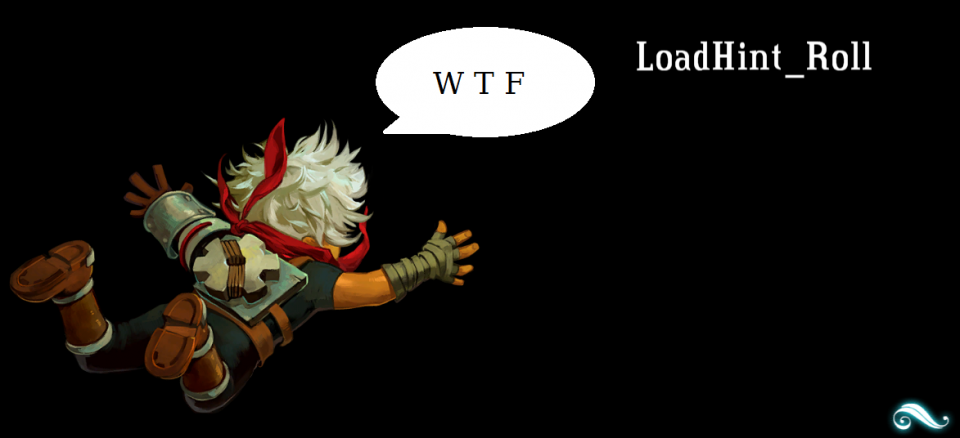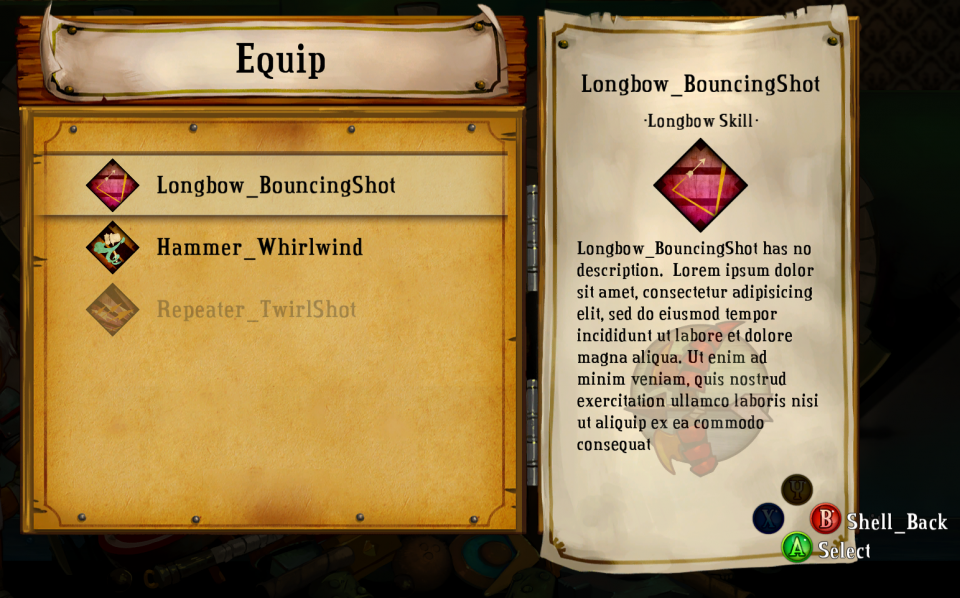How Free-to-Play Will Impact My Playing Style (by and large, it won't)
So, my Star Wars: The Old Republic account is closed, but my particular account going down comes right when whoever-it-is-who-ultimately-makes-decisions-for-SWTOR announced they're moving in a free to play direction. The breakdown of what will be free and what will cost in-game currency is here.
On that list, story content is free no matter what... so, if I want to play any of the other stories I haven't seen yet I can do so with some inconveniences as far as transport and storage, as well as the loss of some of the stuff I've earned playing. I look at that and I know that the reason they chose these things to be restricted is because their stats say people really like to go through the same flashpoint over and over again...
OK, I said "like" just now, but that's not accurate. People do it. I'm not sure that they like always losing loot rolls, or needing to group up with strangers and spacebar through conversations for social points, going insane when someone doesn't hit that spacebar, and doesn't run straight for the exits. I didn't care about the loot so much but skipping the story and getting to the grind is about the craziest behavior combination I can think of in gaming. I doubt so many people like doing it; I get the feeling that they're less annoyed when things sort of go their way, and by contrast that feels like you like it.
If you tell me that I get to BYPASS this obsessiveness with the pressure of a subscription gone, to just play things for story at my own pace and not get charged, it makes me feel a bit isolated, like I'm not understanding the game correctly, and I also cease to be a customer and just become a user if this is true. I'll feel a bit guilty, but maybe this lack of understanding on my part makes me a minority player, something I'm totally used to, spending a lot of the time just exploring the map, finding secrets, and doing a bit of RP to practice my mad making-stuff-up skills.
I'll go back, group with my old friends, finish up the other stories that I want to see first-hand, maybe look a little boring, maybe having my inventory fill up too fast, but I can live with that. I'll even do the flashpoints solo, each once, to see what story I missed and feel like a badass as I'm cleaning the clocks of bad guys way under my level, pretending it's a movie or something. The production values of the game are quite high, so... it leaves me wondering if this will work out for them.
The Specific Differences of Free Accounts (doesn't seem to bother me much)
I'll itemize the list now, and give my reaction to each of the elements on that list as I experienced them, and whether the monetization matters to me:
Story Content: Players can play their full class stories from levels 1 to 50.
Free for both. Since this is pretty much the stuff that matters for me, I think this is an odd choice. You can also do a bit of RP, as crazy as it feels at first, to add a bunch of content that's created between players. Not everyone's into that, and if you'd told me even a year ago that I might be into having in-character conversations I'd have told you misread my nametag, but there are enough slow-walkers on the RP server I played on to make that vulnerability extra fun. Couldn't do it all the time, can't stand bottling up my meta references too long, but it's a nice break from treating the game like a ladder made of numbers.
Character Creation Choices: Some character creation options, such as species, are limited to subscribers.
I'll admit I'll be a bit annoyed if some of the aliens I made will become unplayable, but these nuances can be overlooked. I suppose this is how you can spot a leech like me, we'll be wearing the same boring garb and sporting one of a few haircuts. People are competitive by nature, so we'll either want to conform to what we think is appropriate or wildly non-conform, both of which are behaviors that fall in line with increased customization options. But I tend to non-conform in non-optimal ways, mixing and matching stuff I should probably discard. I imagine I annoy players who are into optimality. Doesn't bother me one bit, and limitations are always a good framework for creativity... so whatevs.
Warzones: Free-to-Play members will have limited weekly access to Warzones.
This is the massive PvP arena stuff, with contextual things to complete to succeed. I never played one of them, as far as I'm aware.
Flashpoints: Free-to-Play members will have limited weekly access to Flashpoints.
Flaspoints are exciting, especially when you're desperately battling an end boss and things work out. They're intensified by the group dynamics, and the stories tend to be more heavy-hitting and cinematic. But they're also made not to take too long, even if your group's willing to take the time to let you respond how you want to things, and explore a bit. It depends on how limited, but even doing each flashpoint ONCE for a given character would be cool enough for me, with maybe a few repeats to see how other people react to conversation options. If they're not severely limited, even a limit wouldn't affect me all that much.
Space Missions: Free-to-Play members will have a weekly cap on Space Missions.
I played these quite a bit, but I can't imagine a reasonable cap would affect my playing these at all.
...What's starting to dawn on me is that once you hit level 50 or whatever, you'll maybe want to do more with your character, but a lot of that will be limited. You're maybe getting an extended free trial with some limitations on growth and customization... but for me what was most fulfilling was the story, with an ending, and you get that. It feels like an ending, even if missions come later. It's almost a design misstep, but I can't bring myself to say that BECAUSE games like these benefit profoundly from endings. What they need to do is make the post-ending content feel compelling, and still personalized, rather than generalized to fit all player characters. Anyway...
Operations: Only subscription members can access Operations.
I'm unclear on the extent of what operations are, but I think they're the equivalent of raids on world bosses and the like. Fun, but not something I'd miss terribly. I'm also unclear on how you'd be able to prevent players from at least indirectly contributing to the open world versions of these.
The other operations that take place in blocked-off, unique areas... I never did experience those. I guess they're like Flashpoints only with tons of people. Sounds like it might be interesting but I never did reach that point. Just reached level 50 when it was time to quit.
Travel Features: Subscription members have access to all travel functionality, making getting around the world easier.
Annoyingly vague here. I did use the quick-travel quite a bit, but that was due in part to the pressure of having a subscription. Without that pressure it may take me a while to get around on Hoth, but I'll be more inclined to enjoy the scenery since I know there's no need to be there RIGHT NOW.
Game Login: Subscription members will always be in login queues ahead of free players.
Nice if it's a problem for you, I guess.
Galactic Trade Network: Subscription members can post up to 50 auctions for sale.
I played capitalist with the market system, it was one of the highlights of the game for me selling rare stuff at a premium. Will be irritating not to use that fully, but if it means I save real world money I think It'll be easy enough to bear this advantage in mind. I'd definitely miss the market, though.
I feel like these limitations are largely targeted at someone else. I'll likely take up the game again and, I hate to say it, barring compelling evidence that I'm not getting the best out of the experience, there's very little I'd be spending the in-game currency on.
An Overdue KOTOR Comparison
And as an addendum, addressing the old argument about whether or not this game is a new KOTOR, it's... well... let's play a mental game here. If I imagine this game's mechanics without the Old Republic trappings:
It does have nice conversation customizations, but comparing this to KOTOR's one story, different branches, it doesn't quite have the same impact. There are eight stories with some variations, but they don't feel quite as personalized as they did in KOTOR. The NPCs feel more like slaves than buddies (ok, admittedly, they felt creepily slavish in KOTOR too, especially the second, where you're supposedly able to psycho-analyze them into being force users, all the while here I am just wanting to play a blaster- wielding non-force user having adventures. Silly me.) Alignment choices feel more like grinding for light side or dark side loot than they feel like rational or in-character choices. If you aim to go dark side but can't stomach killing a kid's dad, the game effectively tells you it'll take longer to get that shiny relic you're working toward. You might get a nice email from the dad later on thanking you for helping him, which is actually rewarding in a way that is probably discounted by those who prefer everything to be voiced, but it feels like you're working against the machinery placed in front of you because in the end you'll have to work longer to bring your alignment up to where you want it.
The combat cannot be paused, and the item modification and loot system doesn't really feel anything like either KOTOR. If you're playing at your absolute best, you get incremental increases to your stats and that's it. It's actually more fun for people who don't play optimally, but loot and mods don't really add a whole lot to your capabilities. You'll also get loot that cannot be used by you or your NPCs, at least not effectively, meaning they're very shiny vendor trash, trade items, or something you dump on the market and hope someone buys. If you're a Bounty Hunter and you pick up an item with Willpower or Strength as the prime stats, you don't benefit from those bonuses at all (I think there may have been some difference during Beta, but most of the people I talk to tell me not to worry about those stats even if Strength is supposed to help melee attacks). You can still use the equipment, but it's likely that you'd benefit much more from something that'd fit your class. The prime stats are largely meaningless, just there to force you to focus on increasing that prime stat, balanced against a few others, as high as possible.
Character abilities can be nuanced with the extensive skill trees, but only rarely does this mean a new ability, unlike in KOTOR games where your choices changed as you progressed, with new abilities being unlocked that alter the way you play. Here they do that, but they're pretty much given to you. There were other builds that I could have used on my Bounty Hunter that could have changed things significantly, but these differences weren't important enough to make it feel like I was going in a starkly new direction.
Both KOTOR games were messed up, one famously, and at the very least I know that issues in SWTOR will eventually be resolved, at least major ones. SWTOR has bugs, but it's a lot less fucked up than other games I've seen, online and off.
I don't like how quests sort of come to you, and how your choices are largely dependent on the creativity of the particular quest writer. You reach a new area, questy people beg you to solve your problems if you decide to talk to them, but it feels like it revolves around you a bit too much. There are quests you stumble upon in the environment, which I like, but you never discover solutions before the questions are put to you. I got to the point where I'd start making role-playing decisions on a lot of the quests, telling someone who wanted me to kill a bunch of innocent people to go fuck himself rather than treat it as a chance to level my character up. This wasn't a role-playing choice as far as the game was concerned, it meant that I was simply denying myself that particular wad of advancement. Great.
I came away from my Bounty Hunter's story satisfied (the fact that it's a Star Wars game where you don't have to play a Jedi makes me like it, in that aspect, much more than the KOTOR games' assumed Jedi fantasies). I think my satisfaction was due to it being an actual ending, and I felt like my character had enough of a personality of its own to feel like I owned a bit of that ending, happy that I had the chance to put my spin on what was not an altogether complicated story. Still, with eight separate storylines with wildly different tones, you're bound to feel some inconsistency. There were a few times I wasn't sure who I was going after when I'd taken a bit of a hiatus, and at times my character said things that in no way reflected my attitude toward the subject (happens a lot in dialog choice systems, though Bioware's practice of writing one thing and your character saying another often creates schizo moments of complete incongruity). The use of the alignment system, with Force points, was often weird... sparing one person is good, sparing another is bad, often with tenuous contextual justification. This sort of thing wouldn't be considered a bug by most people, but it bugged me anyway.
The game is beautiful in music, acting, and visuals (there's a reason Voss is my page's background right now), and makes me dread revisiting either KOTOR with their very limited character models. Maybe you liked the 3 lines someone speaking Huttese would say, but I'm happy there are many languages, many species, many many humanoid faces in SWTOR. You see patterns, but it's not like there are five low res guys in the entire galaxy anymore. The voice acting, though, is a MASSIVE liability for them. Creating new content means getting the voice actor to come back and do dialog. It means recording that dialog, paying the actor, and integrating it properly into the game. Every time. Every damned time. Voice acting is nice, but sometimes text is better for games. Text can be made by one person who knows what's going on. Audio involves several people, and in a game this massive, that's a big several, with many inconsistencies piling up on themselves. A huge cost, just so we don't have to read.
KOTOR and SWTOR are fundamentally different in a lot of ways. If you valued KOTOR's stories, and want to see the continuation of those stories in a land where Jedi and Sith are everywhere, then you'll probably dig this more than someone who wants a Dungeons and Dragons, fully plausible tactical combat with light and dark side options that make sense on a single character and NPCs with a bit more to them. The game's main storylines are ostensibly completable as a solo player, but I benefited greatly by having friends who were more into it than I was to show me what to do and accompany me through rough spots that were a bit tougher than my character was. The mostly helpful general chat also let me figure things out instantly. Grouping brought some of the best experiences when you see how someone who's from a completely different mindset tackles their character building and conversation options... in that way the world revolves less around you than it does in KOTOR, which is a relief, though you're ultimately told in private story moments that you're super awesome. The two don't quite exist easily together, but that's not the kind of thing that's ever really bothered me.
If you do decide to try it out and you decide to play it alone, you'll be able to do it, though you may have to view it as a more casual thing than you'd get in KOTOR. If you want to hammer through the game as fast as possible, you'll need help or you'll need to master systems and do a lot of quests. My friends and I have discussed starting from the very beginning and just experiencing all the stories in a run-through from beginning to end, with the aim of getting the grouping bonuses. That actually sounds like it could be fun, and is totally possible given how the game is laid out.
Once the game goes free, this particular household may come back, and we may spend an hour or two playing every once in a while. We'll be keeping it on our hard drive, looking at what the specifics of the free-with-coins stuff, maybe even get a month's subscription to go back to the full game if we actually find we miss it. I don't know if they'll like to have us around since we're unlikely to buy anything, but this is how they're going to try to boost their numbers. I wish 'em good luck.
In the meantime, I've been neglecting Skyrim and Grimrock...



Log in to comment